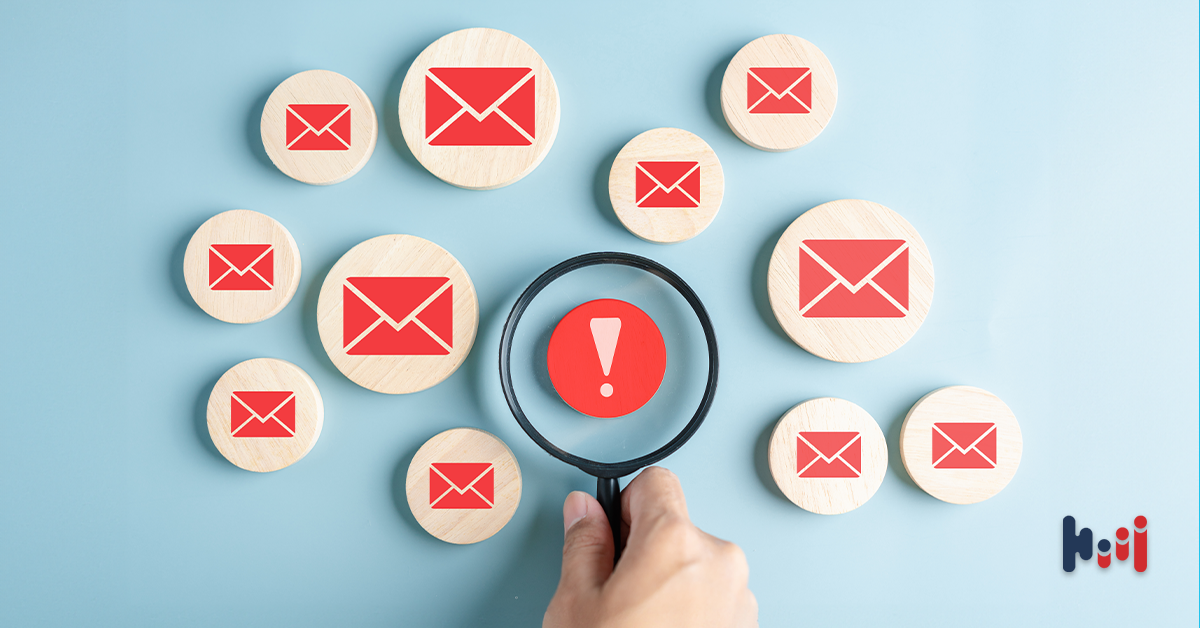Email marketing is not just about the quantity of emails you send out. No matter how much you up your ratio, your email marketing campaigns can be very much affected without data quality prioritization. Having said that, email marketing remains and proves to be a powerful tool for businesses to connect with their audience and drive revenue. However, maintaining a healthy and engaged email list is crucial for the success of any email marketing campaign. Unfortunately, businesses do tend to overlook the issue of B2B data decay in their email lists and fail to realize the negative impact it can have on your marketing efforts until the damage cannot be undone anymore.
This article will shed light on the importance of understanding and addressing email list decay, and how regular email list verification can help businesses stay ahead of the game.
Why is email list decay a concern for businesses?
Email list decay refers to the gradual deterioration of email addresses on a subscriber list. This decay is primarily caused by factors such as email address changes, job transitions, and even inactive or disengaged subscribers. As a result, businesses may find themselves sending emails to addresses that no longer exist or to individuals who have long lost interest in the brand. The consequences of email list decay can be detrimental to a business’s email marketing efforts.
The effects of data decay on B2B businesses can be significant. Here are some ways it can impact them:
- Wasted resources: B2B businesses invest time, effort, and money in creating and sending email campaigns. When a significant portion of the email list is outdated or inactive, these resources are wasted on recipients who are unlikely to engage with the content.
- Decreased campaign effectiveness: Data decay can lead to lower open rates, click-through rates, and conversions. This means that B2B businesses may fail to reach their target audience effectively, resulting in missed opportunities for lead generation, customer acquisition, and revenue growth.
- Damaged sender reputation: When high bounce rates and spam complaints occur, it can negatively impact the sender reputation of a B2B business. This can result in emails being filtered into spam folders or blocked by email service providers, reducing the chances of reaching the intended audience.
To mitigate the effects of data decay, B2B businesses should regularly clean and update their email lists. This involves removing invalid or inactive email addresses, re-engaging with disengaged subscribers, and implementing strategies to capture and maintain accurate contact information.
Email marketing campaigns rely heavily on accurate and up-to-date data, and by extension, your sales and marketing teams’ efficiency. When email addresses in a subscriber list decay, the quality of data decreases, and the effectiveness of email marketing campaigns is compromised. Sending emails to invalid or disinterested recipients not only wastes marketing resources but can also damage a business’s reputation and credibility. Moreover, outdated data, not to mention bad data, can lead to missed opportunities for customer engagement and conversion. In the competitive landscape of B2B, where customer attention is fleeting amidst competitor content, businesses cannot afford to have their messages lost in the void due to data decay.
Signs Your Email List is Decaying Under Your Nose
Data decay is the gradual degradation of the quality of data over time. It happens without blatant symptoms and given the timeframe data decay requires to clearly manifest, B2B marketers can easily overlook small numbers of inaccurate data. Here are early on-set signs that your email list might be decaying.
- High bounce rates: If a significant portion of your email messages are bouncing back as undeliverable, it could indicate that the contact information in your list is no longer valid. Bounces can be categorized as hard bounces (permanent delivery failures) or soft bounces (temporary delivery failures).
- Low open and click-through rates: If your email campaigns consistently have low open rates, it may suggest that your subscribers are no longer engaged or that the email addresses in your list are no longer actively used. Low open rates can be an indication that your emails are not reaching the intended recipients.
- Increased spam complaints: If you notice an increase in the number of subscribers marking your emails as spam, it could indicate that your email list includes recipients who no longer wish to receive your messages. This can negatively impact your email deliverability and sender reputation.
- Email deliverability issues: When you notice a decline in your email deliverability rates, it indicates that the email addresses in your database may no longer be active or valid. This is a sign of data decay because it suggests that your contact list is not regularly updated, resulting in undelivered emails and wasted resources. For example, if you have a large number of bounced or returned emails, it may be a sign that those addresses and phone numbers are no longer active.
- High unsubscription rate: If you notice a significant increase in the number of people unsubscribing from your email list, it can be a sign of data decay. This indicates that your subscribers may no longer find your content relevant or valuable, resulting in them opting out of receiving further communications.
- Low engagement: When your email open rates, click-through rates, or overall engagement metrics are consistently low, it suggests that your audience may not be actively engaging with your content. This could be a result of outdated or irrelevant data within your contact list. This might also suggest that the buyers in your email list no longer fit your ideal customer profile (ICP).
- Minimal conversions: If you are experiencing low conversion rates, such as low click-to-purchase or lead generation rates, it can be an indication of data decay. This means that the recipients of your emails or other marketing efforts are not taking the desired actions, which could be due to inaccurate or outdated contact information.
The Importance of Regular Email List Verification
To directly combat B2B data decay, regular email list verification is an essential practice for businesses that value the effectiveness of their email marketing campaigns. Verifying email addresses on a regular basis allows businesses the confidence that your messages reach the intended recipients and maintain a high level of deliverability. Moreover, email list verification helps businesses identify and remove invalid or disengaged addresses, thereby improving the overall data quality.
In addition to maintaining deliverability and data quality, email list verification also offers other significant benefits for businesses:
- Cost savings: By removing invalid or disengaged addresses from the email list, businesses can reduce the cost of sending emails to unresponsive recipients. This allows for better allocation of marketing resources and a higher return on investment.
- Improved engagement: A clean and verified email list ensures that businesses are reaching an audience that is genuinely interested in their products or services. This increases the chances of higher engagement rates, such as opens, clicks, and conversions.
- Enhanced sender reputation: Email service providers assign reputation scores to businesses based on their email practices. By regularly verifying their email lists, businesses demonstrate their commitment to maintaining a healthy sender reputation, which in turn, leads to better deliverability rates.
Choosing the Right Email Verification Service for Your Business
With so many options available, it can be overwhelming to make an informed decision, especially regarding your email data management. However, when selecting an email verification service, you should consider a few key factors to ensure they choose the right provider for your needs:
- Accuracy: Look for an email verification service that offers high accuracy in identifying invalid or risky email addresses. This will ensure that your email list is thoroughly cleansed and that you can trust the results provided by the service.
- Speed: Time is of the essence when it comes to email list verification. Choose a service that can verify email addresses quickly and efficiently, allowing you to maintain the momentum of your email marketing campaigns.
- Data security: Email lists contain valuable customer data, so it is crucial to choose a service that prioritizes data security and confidentiality. Look for providers that offer robust security measures and adhere to industry standards.
- Integration capabilities: Consider whether the email verification service can easily integrate with your existing email marketing platform or CRM system. Seamless integration can simplify the verification process and ensure a smooth workflow.
How DemandScience Verifies and Cleanses Your Data
At DemandScience, we offer a comprehensive email verification and cleansing service that helps businesses stay ahead of the game. With our advanced algorithms, extensive databases, and commitment to data security, we provide accurate and reliable results to improve the quality of your email lists.
Our email verification process utilizes advanced algorithms and extensive databases to ensure accurate and reliable results. We go through meticulous verification processes and help businesses eliminate inaccurate and bad data to improve the deliverability and effectiveness of your email campaigns.
DemandScience also prioritizes data security and confidentiality. We adhere to strict security protocols to safeguard our clients’ data and ensure compliance with privacy regulations.
With seamless integration capabilities, our email verification service can easily integrate with your existing email marketing platform or CRM system. This streamlines the verification process and allows for a hassle-free experience.
Conclusion: Data Quality is a Responsibility
Data quality can make or break businesses. It is the foundation of effective email marketing. Collect it right, store it right, use it right. Regular email list verification is the key to combating email list decay and maintaining a healthy email marketing database. Don’t let email list decay hinder the success of your email marketing campaigns. Remember, your email list is only as good as the data you have.
Contact DemandScience today to learn more about our email verification services and take control of your email marketing success.











